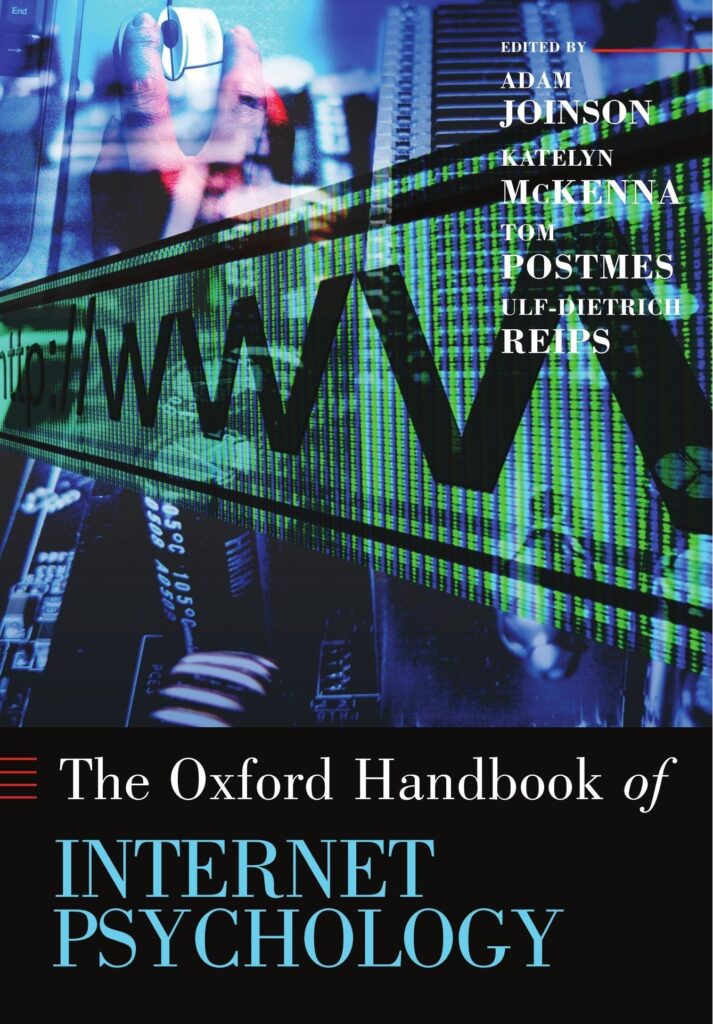The reader is asked to tolerate a degree of egocentrism if this chapter appears to be written from an “ingroup” point of view, particularly with an emphasis on our own theoretical slant, and to some extent research. This is after all meant to be a general overview chapter on social identity and CMC. Our excuse is that this is difficult to avoid to some extent. When we started working in this area in the mid-80s there was very little research on the role of social identities in CMC, and what there was seemed to present CMC as an ideal medium for escaping from the restrictions of social categories and identities that bind us to them (e.g., Kiesler at al., 1984). Although these early approaches to CMC did not deny that social constraints could sometimes be good, when they were presented in a more positive light (by providing social standards) once again CMC was construed as subverting them. In both cases the social identity seemed to be “excommunicated” from the realm of CMC.
The other dominant image of cyberspace in the early approaches was a new realm of liberation where we could (re)invent the self and escape the strictures and stigma of embodiment and social categories (e.g., Haraway, 1990; Turkle, 1995). Here social identities could be seen as part of the potential paint-box of how we present ourselves, but potentially something as much to be escaped, manipulated or dissimulated rather than truly represented. Even those who have advocated CMC as a medium to present the true and authentic self (Bargh & McKenna, 2002) by implications see social identities as a barrier, something that is blinding others to being appreciated as unique individuals in terms of authentic self. In all these accounts the implication has been that social reality, and social categories and identities, were something that could best be transcended through CMC and cyberspace. We are not claiming this can never occur; the point is rather that this does not provide a fertile basis for viewing social identity as central to CMC.
It was against this backdrop that we tried to argue that, paradoxically perhaps, social identities could find especial expression in CMC, and moreover, that this might not necessarily always be a bad thing. For this reason we hope the reader will indulge a little egocentrism in structuring this overview around our own approach, although empirical work in this area has multiplied well beyond our own research network. There are other approaches that also point in to the influence of social identities in CMC, many from outside of social psychology, and we also give these credit. However we start with an elaboration of the social identity model of deindividuation effects (SIDE for short) because this provides an early explanation of which social identities can become even more powerful and consequential in media such as CMC and the Internet.

Spears, R. Lea, M. & Postmes, T. (2007). CMC and social identity. In A. Joinson, K. McKenna, T. Postmes, & U Reips (Eds.) Oxford handbook of Internet psychology. Oxford: Oxford University Press. (pp. 253-272).
About the Book
The Oxford Handbook of Internet Psychology brings together many of the leading researchers in what can be termed ‘Internet Psychology'. In addition to well-studied areas of investigation, such as social identity theory, computer-mediated communication and virtual communities, the volume also includes chapters on topics as diverse as deception and misrepresentation, attitude change and persuasion online, Internet addiction, online relationships, privacy and trust, health and leisure use of the Internet, and the nature of interactivity.
With over 30 chapters written by experts in the field, the range and depth of coverage is unequalled, and serves to define this emerging area of research. Uniquely, this content is supported by an entire section covering the use of the Internet as a research tool, including qualitative and quantitative methods, online survey design, personality testing, ethics, and technological and design issues.

